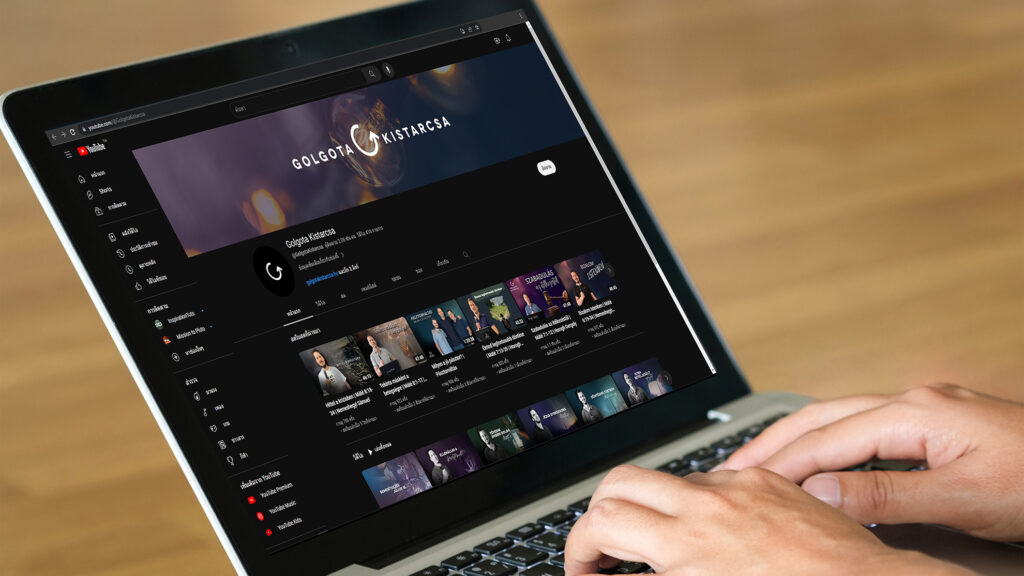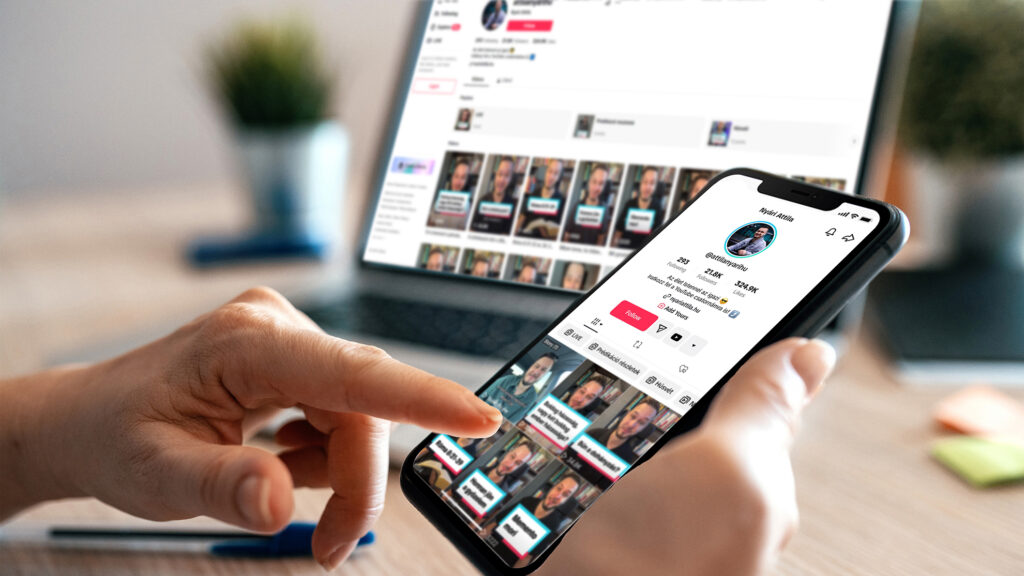A pastor in Hungary looked at the increasingly secular culture around him, where people view the church as irrelevant, and sought new ways to make meaningful connections. When he realized he could reach many more people online than within the walls of his church building, he took to social media to share the gospel.
Attila Nyári is the senior pastor at Golgota Church in Budapest, Hungary, and is Chief of Staff for the Lausanne Movement. He recently joined The Indigitous Podcast to discuss his strategies for using social media to share Jesus.
Attila is passionate about reaching people for Christ and helping them have a personal relationship with Him. “I’ve seen so much legalistic religion. My heart is to bring people to Scripture so they can discover the real good news of Jesus,” Attila says.
According to the Joshua Project, 87% of Hungary’s population professes to be Christian, with only 3% evangelical, but according to Attila, most are nominal Christians. Hungary’s relationship with Christianity is a long and complicated one. For a long time, Christianity was the country’s official religion. Several factors, including the church’s activities during the Soviet Bloc era, have left much of the public jaded regarding the church. At best, they see the church as outdated and unnecessary; at worst, they see it as corrupt and full of hypocrites. “When people look at the church, there are different associations, but probably none that we would hope to have,” he says.
“People don’t see a lot of relevance in the Christian message,” Attila says. “Especially younger people. I don’t think they see relevance in organized religion. Now, Jesus, maybe, but organized religion, definitely not.”
Reaching the younger generation
Attila believes that one of the reasons Hungarians aren’t interested in the church is because they see it as too outdated and confusing. Most churches don’t communicate in a way that impacts today’s generations.
In Hungary, churches tend to be very traditional. People dress formally to attend formal, highly liturgical services with traditional music.
“It doesn’t get across, not just to younger generations, but to everyday people. Like unchurched people, they can’t really connect. So one of the first things we’ve tried to do is do church in a very informal way,” Attila says.
Attila has simplified the services at his church and ensures that everything they do and he says can be understood, even if that service is someone’s first exposure to Christianity.
“Even just explaining Scripture in very simple terms, with language that everyday people can understand — it’s not full of theological lingo. Maybe you haven’t gone through Sunday School, and you should still understand the message,” he says.
That value of simplicity and informality has impacted people who visit the church. Many who come are surprised that it’s not like most church services and that the message is easy to follow. “A lot of our appeal as a local church is, ‘Oh, I came here, and I actually understood what’s being said,’” Attila says.
Gospel presentations on social media
Around 80 people attend Attila’s church each Sunday, but he believes his role as pastor is to reach well beyond that number. One day, looking at the audience for the church’s YouTube channel, he had a revelation: The YouTube videos reach ten times as many people as his in-person sermons.
“We have a huge lobby online, people have not walked into the room yet, but they are connecting with the church somehow,” Attila says. “Maybe that’s an easier on-ramp for people than to walk into a building full of people that they don’t know at 10:00 am on Sunday.”

Attila saw this as a significant opportunity to reach people not interested in walking through his church doors, especially young people. As a pastor, Attila believes his role is to walk with people on their spiritual journeys and help them grow in their relationship with Jesus. The problem is that he has so little time with his congregation. “Church is two hours per week,” he says. “What happens in the other 166 hours?”
Sharing the gospel on TikTok
Determined to supplement those sermons and spend more time helping people on their spiritual journeys, Attila opened a TikTok account. Through TikTok, he hoped to maintain those relationships throughout the week and stay close to people to help them through their everyday challenges.
But TikTok itself was a challenge for Attila in the beginning. “I consider myself to be young, but when I first saw TikTok, I thought, ‘I’m not young anymore.’ The platform didn’t make sense at all,’” he says.
Attila spent some time familiarizing himself with the platform, learning about the different memes and trends. Then he challenged himself to post a one-minute video every day for twenty days and see what happens. The videos were basic, with no editing or graphics — just Attila talking in his car after dropping off his kids at school. In the videos, Attila shared about God and discussed scripture, often based on YouVersion’s verse of the day.
Though he initially started TikTok to shepherd his congregation, he soon found God gave him a much larger audience. “TikTok is really an outreach platform, so it will reach out to people who are not connected to you in any way because of how the algorithm works,” he says.

After posting the videos, Attila realized that many people who had no interest in attending church in person were still interested in engaging in spiritual discussions online. He got tons of comments and messages, many from anonymous accounts, and had great conversations. “I think I had more conversations in the first three months of doing this than over the course of years in the church,” he says.
Many non-Christians engage with Attila’s posts to understand his worldview and share their own. Some others have told him they’re Christians who have drifted away from God, and seeing his videos inspired them to rekindle that relationship. One person messaged him and asked if she could be baptized, and Attila found a nearby church that could baptize her.
Those conversations are what keep Attila posting on TikTok. “It’s all of those things, having meaningful conversations with non-believers, with seekers, with skeptics even. Then, the icing on the cake that I was not expecting is that we now have two people and one family who come to the church because they discovered my videos on TikTok,” he says.
A Challenge
You don’t need to be a pastor like Attila to share the gospel on TikTok. In fact, Attila doesn’t even mention that he’s a pastor in his profile, because he thought that might make some people hesitant to engage with him.
When starting on the platform, Attila researched the top Christian content creators. “I would say that the top ten Christian TikTok creators are not even in ministry,” he says. “It’s just Christians seeing an opportunity and making use of it.”
Attila encourages all Christians to use their favorite social media platform, whether it’s TikTok, YouTube, or something else, to connect with people and share the gospel. People spend large chunks of their life using social media, so Christians need to create some of the content they consume. Any Christian with a computer or smartphone can be integral to this digital missions strategy. “We need to think about how we can take the biggest possible slice of that cake of social media consumption for Jesus,” Attila says. “My advice would be just to start.”
Sharing Jesus on social media has its challenges, of course. One such challenge is that it will attract trolls, people who hate your message, and other difficult people. But dealing with challenging people is something that comes along with living missionally.
“Social media is raw, especially TikTok,” Attila says. “People will find you and will say ugly things in your face, they will ask questions that you don’t know the answer to, they will criticize you, they will get personal, they will say stupid things that you won’t know how to respond to in a Christlike way, but that’s all okay. I’m pretty sure Jesus had all of that and more when he was walking the Earth.”
Any follower of Jesus can make an impact for God on social media. We challenge you to take a step of faith this month and use a social media platform to share Jesus and walk with people on their spiritual journeys as they engage with your content. Remember, it’s not your job to “convert” someone. All you can do is share your message in the power of the Holy Spirit and leave the results to God. “You might not win them over for Christ in the first conversation, but hopefully, God willing, you can give a positive impression,” Attila says.
Try this
Choose a social media platform and use it to share the gospel. Engage prayerfully with everyone who comments or messages you.

